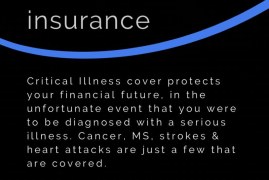Commercial General Liability Insurance covers business-related risks, while Public Liability Insurance protects against third-party claims. Both policies offer financial protection for businesses facing lawsuits due to bodily injury or property damage.
Commercial General Liability Insurance is broader in scope, encompassing risks beyond just public liability. It also includes coverage for products liability, completed operations, and advertising injury. Public Liability Insurance specifically focuses on third-party bodily injury or property damage claims arising from business operations.
By understanding the nuances of each type of insurance, businesses can ensure they have proper coverage to safeguard against potential liabilities and legal challenges.
Commercial General Liability Insurance
Commercial General Liability Insurance provides crucial protection for businesses against claims for bodily injury, property damage, and personal/advertising injury. It offers coverage for incidents that occur on the insured premises or as a result of business operations, products, or completed work.
Coverage Details
Commercial General Liability Insurance covers:
- Bodily injury and property damage: Costs resulting from physical harm or destruction of property caused by the business.
- Personal and advertising injury: Protection against claims of libel, slander, and copyright infringement.
- Medical payments: Covers medical expenses if someone is injured on the business premises.
Benefits And Limitations
The benefits of Commercial General Liability Insurance include:
- Financial protection: Helps cover legal and medical costs associated with covered claims.
- Reputation safeguard: Protects the business’s image by managing potential lawsuits.
However, it has limitations such as:
- Exclusions: Certain events and risks, such as professional errors, are not covered.
- Limited coverage: Some claims may exceed policy limits, leading to additional expenses.
Public Liability Insurance
Public Liability Insurance provides coverage for businesses in case of third-party injury or property damage. It differs from Commercial General Liability Insurance as it specifically focuses on public-related incidents, making it essential for businesses dealing with public interactions to mitigate potential risks and protect their assets.
Scope Of Coverage
Benefits And Limitations
Public Liability Insurance provides coverage against third-party claims for property damage or bodily injury that occur on your premises. It protects your business if someone is injured or their property is damaged while dealing with your business activities. This policy is essential for any business that involves interaction with the public.Scope Of Coverage
Public Liability Insurance offers coverage for third-party claims due to property damage or bodily injury on your premises. It safeguards your business from liability in case of accidents involving the public users.Benefits And Limitations
The benefits of Public Liability Insurance include financial protection in case of lawsuits and coverage for legal fees. However, this policy may not cover all types of liabilities such as professional negligence or contractual disputes.Benefits And Limitations
Public Liability Insurance offers financial security against third-party claims and covers legal expenses. It has limitations as it may not include certain liabilities like professional errors or contractual issues.Comparison
Comparing Commercial General Liability Insurance and Public Liability Insurance helps businesses understand the differences in coverage for potential risks and claims. From property damage to bodily injury, these policies protect against unique liabilities, ensuring adequate protection in various commercial settings.
Coverage Comparison
When it comes to protecting your business from financial losses due to liability claims, you have two main options – Commercial General Liability (CGL) insurance and Public Liability insurance. While these two types of insurance provide similar coverage, they differ in terms of the entities they protect and the specific risks they cover. Let’s take a closer look at the coverage comparison between these two insurance policies.Cost Analysis
When it comes to budgeting for insurance, the cost is an important factor to consider. Both Commercial General Liability and Public Liability insurance have various factors that influence their premiums. These factors include the size and type of business, risk exposure, and coverage limits. Let’s analyze the cost of each insurance policy to help you make an informed decision. Commercial General Liability insurance typically offers broader coverage and higher limits, therefore, it is generally more expensive compared to Public Liability insurance. However, the exact cost can vary significantly depending on the specific circumstances. Typically, CGL insurance premiums are more expensive for businesses that have a higher risk of liability claims, such as construction companies or manufacturers. On the other hand, Public Liability insurance is primarily designed for businesses that interact directly with the public, such as restaurants or retail stores. It covers incidents that occur on your business premises or as a result of your business operations, which can include injuries or property damage caused to third parties.Comparison Table
To better understand the differences between these two insurance policies, here’s a comparison table highlighting their key features: | | Commercial General Liability Insurance | Public Liability Insurance | | —————————- | ——————————————————– | ———————————————————– | | Coverage | Protects businesses from a broad range of liability risks | Covers incidents within business premises or due to operations | | Entities Covered | Business and its employees | Business and the public | | Claims Covered | Bodily injury, property damage, advertising injury | Bodily injury, property damage | | Coverage Limits | Higher limits available | Lower limits | | Cost | Generally more expensive | Can be more affordable depending on the business | By comparing the coverage and cost of Commercial General Liability insurance and Public Liability insurance, you can make an informed decision about which policy suits your business needs. Consider the specific risks your business faces, your budget, and the nature of your operations to determine the most appropriate coverage for your business. Remember, investing in liability insurance is essential to protect your business from potential financial burdens caused by unforeseen circumstances.Choosing The Right Insurance
When it comes to protecting your business, having the right insurance is crucial. Two common types of insurance that many businesses consider are Commercial General Liability Insurance (CGL) and Public Liability Insurance. While they may seem similar, there are key differences between these policies that you should be aware of before making a decision.
Assessment Factors
When choosing the appropriate insurance for your business, there are certain factors you should take into consideration:
- Business size and nature: Assessing the size and nature of your business will help determine the coverage required. Larger businesses with more employees and higher risks may opt for a more comprehensive policy like CGL.
- Revenue and assets: Evaluating your revenue and assets will assist in determining the level of coverage needed. If your business has significant assets or generates high revenue, you may want to consider a more robust policy.
- Potential risks and liabilities: Identifying the potential risks and liabilities specific to your industry is crucial. Different industries entail different risks, so it’s important to choose an insurance policy that adequately covers those risks.
- Contractual requirements: Some contracts may require businesses to have specific insurance policies. Before making a decision, it’s essential to review any contractual obligations to ensure compliance.
Industry Relevance
The suitability of each insurance policy often depends on the industry in which the business operates. Here’s a breakdown of how each policy may be more relevant in certain industries:
| Industry | Commercial General Liability Insurance (CGL) | Public Liability Insurance |
|---|---|---|
| Retail and Hospitality | Provides coverage for slip and fall accidents, product liability, and property damage. | Offers coverage for injuries sustained by customers or clients while on the premises. |
| Construction and Contracting | Protects against property damage, bodily injury, and completed operations liability. | Covers third-party property damage or personal injury caused by the business’s activities. |
| Professional Services | Offers protection against claims of negligence, errors, and omissions. | Provides coverage for third-party bodily injury or property damage claims. |
It’s important to remember that these examples are not exhaustive, and the relevance of each policy may vary based on the specifics of your business.
In conclusion, when deciding between Commercial General Liability Insurance and Public Liability Insurance, it’s essential to carefully evaluate your business’s needs and consider the industry in which you operate. By assessing the relevant factors and understanding the industry-specific risks, you can make an informed decision to ensure your business is adequately protected.
Case Studies
Example 1
Commercial General Liability Insurance in action: A small retail store had a customer slip on a wet floor, resulting in a minor injury.
Example 2
Public Liability Insurance at play: During a community event, a vendor accidentally damaged a neighbor’s property.
Expert Insights
Insurance Specialist Views
Insurance specialists emphasize the crucial differences between Commercial General Liability and Public Liability Insurance.
Risk Management Perspectives
Experts provide a deep dive into the risk management angles of these two insurance options.
Frequently Asked Questions On Commercial General Liability Insurance Vs Public Liability Insurance
Is Commercial General Liability Same As Public Liability?
Commercial general liability and public liability are similar but not the same. Commercial general liability covers broader business risks, while public liability specifically covers injury or damage to third parties on business premises.
Is There A Difference Between Public Liability Insurance And General Liability Insurance?
Yes, there is a difference. Public liability insurance covers third-party injuries, while general liability insurance includes property damage.
Is Commercial General Liability Insurance The Same As General Liability Insurance?
Commercial general liability insurance and general liability insurance are often used interchangeably. Both policies provide coverage for bodily injury, property damage, and advertising injury. However, commercial general liability insurance typically includes additional coverages tailored for businesses, such as product liability and completed operations.
Is Public Liability Insurance The Same As Cgl?
No, public liability insurance is not the same as CGL. Public liability covers third-party injury and property damage, while CGL includes broader coverage like product liability and advertising injury.
Conclusion
It’s crucial to distinguish between Commercial General Liability Insurance and Public Liability Insurance. Both offer protection, but for different liabilities. Assess your business needs carefully to choose the best coverage. Make an informed decision based on your specific risks and budget.


Leave a comment